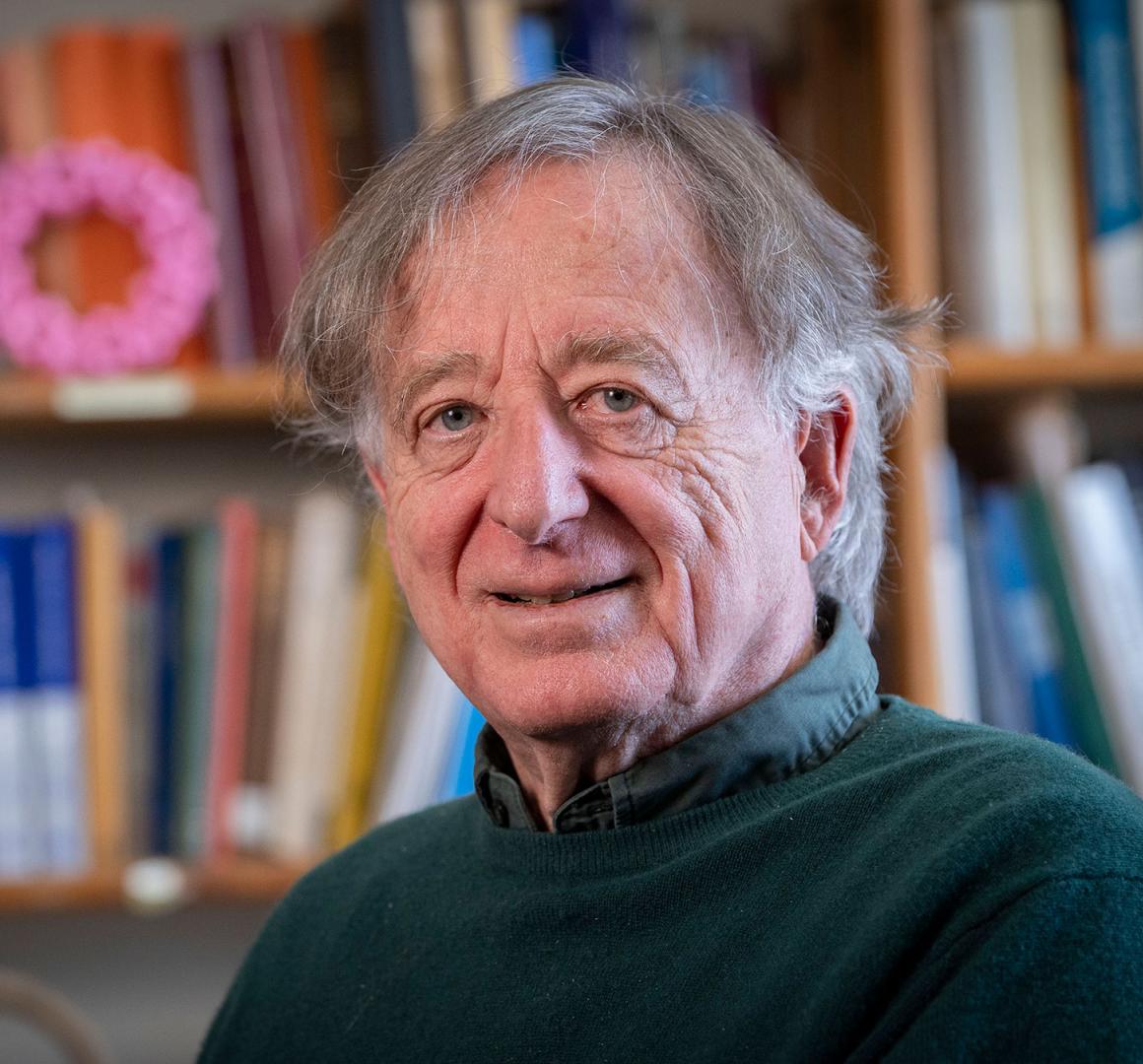Dennis Sullivan *66 wins Abel Prize for mathematics
The Abel is widely considered equivalent to a Nobel prize for mathematics.

Courtesy of State University of New York-Stony Brook
The Norwegian Academy of Science and Letters has awarded the 2022 Abel Prize to Dennis Sullivan *66 “for his groundbreaking contributions to topology in its broadest sense, and in particular its algebraic, geometric and dynamical aspects.” The Abel Prize is widely considered equivalent to a Nobel prize for mathematics.
“I am extremely honored and was delightfully surprised to learn that I will receive the Abel Prize,” said Sullivan. “Mathematics is truly a passion that provides a never-ending stream of curiosities and puzzles, and I’ve been privileged to spend each day of my professional life in the company of the many talented colleagues and students who have conspired with me to tackle these challenges so that we might better understand the rules of the universe. This award is as much a testament to their hard work and insights as it is a gift to me.”
Born in 1941 in Port Huron, Michigan, Sullivan completed his B.A. in mathematics from Rice University in 1963, then came to Princeton, where he worked on the classification of manifolds, one of the fundamental questions in topology, with adviser William Browder. The year after he graduated, he wrote a paper on the Hauptvermutung, an important conjecture in geometric topology, for which he won the 1971 Oswald Veblen Prize for geometry from the American Mathematical Society, the first of many awards he would win in his career.
After a series of fellowships, he was made a permanent professor at the Institut des Hautes Études Scientifiques (IHES) near Paris in 1974. He left IHES in 1997 for the State University of New York-Stony Brook, where he is now Distinguished Professor in the College of Arts and Sciences. He is also the Albert Einstein Chair in Science and Distinguished Professor of Mathematics at the City University of New York Graduate Center.
“Dennis Sullivan has repeatedly changed the landscape of topology by introducing new concepts, proving landmark theorems, answering old conjectures and formulating new problems that have driven the field forwards,” wrote the Academy in his citation. “He has moved from area to area, seemingly effortlessly, using algebraic, analytic and geometric ideas like a true virtuoso.”
In his summary of Sullivan’s work for the Academy, Alex Bello wrote: “Topology and dynamical systems inhabit different mathematical landscapes. Yet Sullivan’s work can be seen as part of a single and consistent visionary endeavour, the study of geometric structures on spaces, whether that space is a manifold or a fractal.”
Sullivan’s notable awards include the Institut de France’s inaugural Élie Cartan Prize in 1981, the 1993 King Faisal International Prize in Science, the U.S. National Medal of Science in 2005, the 2006 Steele Prize for Lifetime Achievement from the American Mathematical Society, the 2014 Balzan Prize for Mathematics and the 2010 Wolf Prize. He is a member of the U.S. National Academy of Sciences, the New York Academy of Sciences, and the American Academy of Arts and Sciences.
His Majesty King Harald V of Norway will present the Abel Prize to Sullivan in Oslo on May 24. The choice of the Abel laureate is based on the recommendation of the Abel Committee, which is composed of five internationally recognized mathematicians. The prize is funded by the Norwegian government and amounts to 7.5 million Norwegian krone, or about $860,000.
Sullivan is the 10th Abel Prize recipient linked to Princeton since the award was first given in 2003, and the fifth consecutively since 2018.
The 2021 prize was awarded to Avi Wigderson, a 1983 Ph.D. graduate. The 2020 prize went to Hillel Furstenberg, a 1958 Ph.D. alumnus. The 2019 prize went to Karen Uhlenbeck, a recipient of a 2012 honorary degree who was then a visiting senior research scholar in mathematics at Princeton. Robert Langlands received the 2018 prize for a theory he developed while an associate professor at Princeton.
The 2016 prize went to Andrew Wiles, the James S. McDonnell Distinguished University Professor of Mathematics, Emeritus. Late University mathematician John Nash shared the 2015 prize with Louis Nirenberg of New York University. The 2014 prize went to mathematics Professor Yakov Sinai. The 2011 prize went to John Milnor of the Class of 1951, who received his Ph.D. in mathematics from Princeton in 1954 and taught in the department until 1970. John Tate, a 1950 Ph.D. alumnus, won the 2010 prize.
This article was originally published on the Princeton University website.


